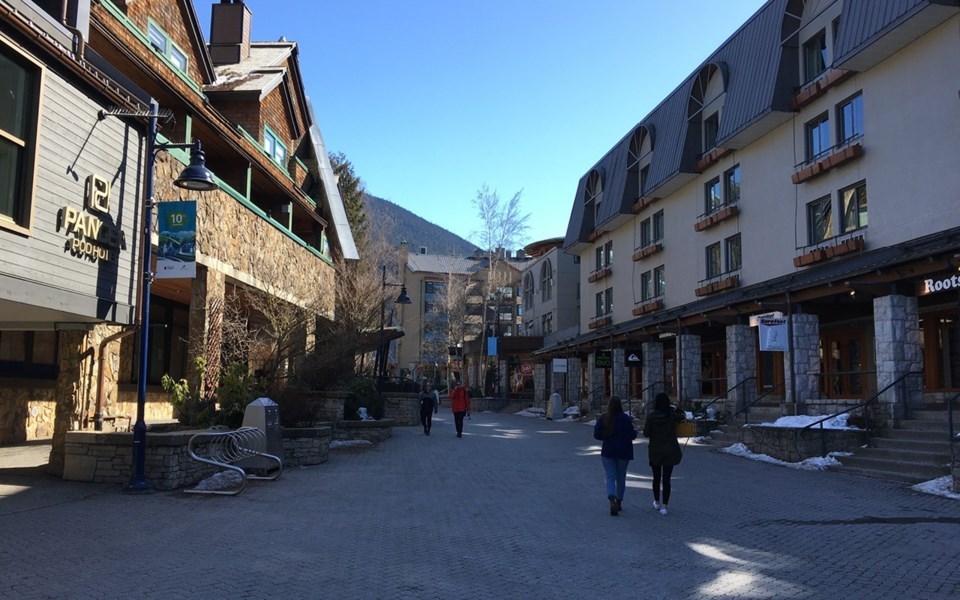Whistler has seen 103 positive cases of COVID-19 in 2021, according to Vancouver Coastal Health's (VCH) chief medical health officer for the Sea to Sky.
With a recent spike in cases, the Resort Municipality of Whistler (RMOW) organized an 11th-hour community information session Thursday evening, Jan. 21, with local health, business and community leaders taking a number of coronavirus-related questions from the public.
Offering the most granular and up-to-date figures on the virus in Whistler since the pandemic began, Dr. John Harding confirmed the past three weeks have seen a significant rise in cases. We also learned the resort had 271 cases for the entirety of 2020. (VCH does not typically share community-specific numbers in small towns when cases are below a certain threshold in order to protect medical privacy.)
“We did see an increase in cases back in November,” he said on the well-attended Zoom call. “We’re not seeing as many this time around quite yet. But that said, COVID tends to travel in certain social circles, and the important thing is we have really good COVID safety protocols in Whistler. I can attest to that because of all the contact tracing: we’re not seeing the transmission happen, for the large part, in our businesses and restaurants, and that’s thanks to the COVID protocols people have.”
Harding noted the majority of the recent transmission has occurred within households, with about 60 to 65 per cent of cases hitting the 20- to 29-year-old demographic. That increases to between 70 to 80 per cent of local cases once extending the age range up to 40, Harding said.
The disproportionate impact on Whistler’s young adults is largely a function of the resort’s customer-facing economy and cramped living situations, explained Dr. Karin Kausky of the Whistler Medical Clinic.
“The COVID pandemic has in our community disproportionately affected a really specific demographic, which are young people that work in the service industry or on the frontlines and in dense, large housing situations. That makes this really difficult,” she said, before commending the job young people have done to further prevent the spread.
“It has been so striking to me how committed this demographic is to doing the right thing. I don’t think everyone knows that,” she said. “It is difficult to do the right thing in these situations if you are economically vulnerable—and they’re not just doing it for themselves.”
Despite the last-minute announcement, the virtual meeting was the most well attended in Whistler’s municipal history, confirmed an RMOW spokesperson, with the Zoom call maxing out at 500 streams, while a Facebook watch party of the meeting generated another few hundred viewers.
No interprovincial travel ban
The meeting coincided with an announcement from the province that it was not legally entitled to restrict travel into B.C., an option Victoria was exploring in recent days and one that many in Whistler had called for.
"We've heard from many people who are worried travel from outside B.C. has contributed to the spread of COVID-19. In response to those concerns, we asked for legal options on restricting interprovincial travel and a better understanding of the impact of travel on transmission,” said Premier John Horgan in a statement.
"The review of our legal options made it clear we can't prevent people from travelling to British Columbia. We can impose restrictions on people travelling for non-essential purposes if they are causing harm to the health and safety of British Columbians. Much of current interprovincial travel is work related and therefore cannot be restricted. Public health officials tell us what is most important is for everyone to obey health orders, wherever they are, rather than imposing mobility rules. Therefore, we will not be imposing travel restrictions at this time.”
Horgan went on to say that if officials see transmission increase due to interprovincial travel, the province would impose stronger restrictions on non-essential travellers.
Collective effort
Whistler Mayor Jack Crompton reiterated that preventing further transmission is everyone’s collective responsibility.
“The conversations I’ve been having with people online is about visitors. One of the things that’s really occurred to me today … is this is an everybody problem,” he said. “This is a traveller problem, it’s a problem for people who’ve lived here 50 years and people who’ve lived here for five months. Everyone needs to respond.”
Pique will have more on tonight’s COVID-19 information session, which included input from local officials and community leaders such as Tourism Whistler’s Barrett Fisher, the Sea to Sky School District superintendent Lisa McCullough, Whistler Community Services Society’s Jackie Dickinson, and Whistler Blackcomb COO Geoff Buchheister, in next week’s print issue. A recording of the meeting will also be posted to whistler.ca/covid19.
Anyone with COVID-like symptoms is advised to first consult B.C.’s self-assessment tool at bc.thrive.health/covid19/en. If you meet the self-assessment criteria or you are still concerned, you should call Whistler’s dedicated COVID clinic line at 604-966-1428 between 9 a.m. and 2 p.m. daily.




